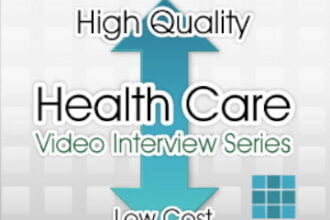
Health Websites: Common Domains
When you do a Google search, chances are you know to look for ‘reputable’ health websites in order to find answers to your inquiry. Generally speaking, the breakdown of various “dots” would be as follows:
.com is for commercial, for profit sites
.org is for nonprofit organizations (like hospitals)

Health Websites: Common Domains
When you do a Google search, chances are you know to look for ‘reputable’ health websites in order to find answers to your inquiry. Generally speaking, the breakdown of various “dots” would be as follows:
.com is for commercial, for profit sites
.org is for nonprofit organizations (like hospitals)
.net or .biz which can be perfectly legitimate but don’t carry quite as much credibility as a registered .com domain
.gov which is reserved for government institutions and programs
.edu – which is always linked to an educational institute of some kind.
Health Websites: .health, .doctor, .clinic
Now there’s a new player in the domain playground – .health
.health, .doctor or .clinic domains are going to be popping up in your search results with the intention of denoting reputable online sources for health information. The problem? These domains can be purchased and used by anyone. They don’t require medical credentials to “go-live”, meaning that anyone perusing the content of the site could stumble upon it and believe that they are getting information from a licensed professional when they are not. The concern brewing amongst public health advocates, doctors and patients alike is that these new .health domains will usher in a whole new platform for scamming. Healthcare has been fraught with identity theft, particularly in relation to the advent of electronic medical records, and the concern now is that by preying on unsuspecting consumers, who are worn down in resources both financial and emotional, hackers and scammers will have an all-access pass to vulnerable patients.
Even on sites that are reputable and have vetted health information and medical professionals curating and reviewing content, the task of finding pertinent and actionable health information is difficult, even in the best of times. Various studies on American Health Literacy reveal that the average American patient only reads at an 8th grade level, and just 12% of Americans have proficient health literacy skills. When you consider the wealth of information available, and its density, finding information online has become increasingly difficult even for that 12%, which is predominantly made of people who are actually in the healthcare or medical field.
Health Websites: Are they reputable? How are they assigned?
Internet Corporation for Assigned Names and Numbers is the international body responsible for handing out these domains- though, it’s not as simple to obtain one as it would be to go on GoDaddy and pay a couple hundred bucks. .health domain names are going for thousands, not hundreds, of dollars. For good reason, though: the highly competitive healthcare market means that having access to consumers through the use of such a domain, which is expected to take off in the next few years as telehealth and telemedicine continue to gain traction, is an unparalleled opportunity for payers, medical professionals and pharmaceutical companies.
In the right hands, it could have huge potential to do good – the problem is, at first glance it will be near impossible to tell the legitimate sites from the scams – unless a credentialing process is rolled out, which at this time, there doesn’t appear to be one in the works. What is likely to happen is that big companies will buy up as many domains as they can afford and then, in turn, resell them to established, reputable sites run by, for example, the American Heart Association, The Mayo Clinic, John’s Hopkins, etc. These companies know how to turn a profit; they can purchase a .doctor domain for a few thousand and then flip it, upping the ante, and selling it to healthcare system or pharmaceutical company for millions.
These sales are already well underway, without a proper method in place for vetting the credentials of the buyers or those who will be providing information on the websites themselves. This has many in the industry rightfully concerned. The only answer seems to be for us to continue to educate patients about taking online health information with a grain of salt, and continue to emphasize the importance of not making any changes to treatment regimens without first consulting your doctor.







